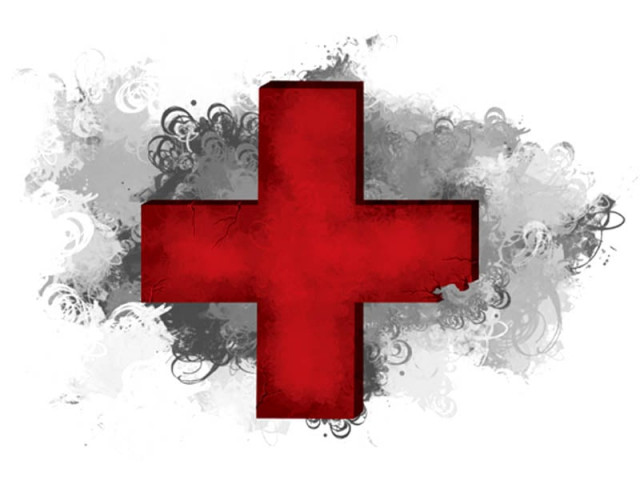Public service initiative: KTH to launch training programme on emergency aid
Course aims to decrease fatalities in victims of terrorist attacks.

Many wounded victims of bomb blasts die before they reach hospital. If the people around them know first aid techniques, then their life can be saved, says Ayub.
The new course titled ‘Empress Razia Sultana Basic Life Support for Health Care Professionals’ will also train paramedics and journalists. Two batches of 15 participants will be trained each month by six doctors, Dr Saima Gillani, Dr Ambar Ashraf, Dr Tamjid, Dr Akbar Shah, Dr Habib Qazi and Dr Asad Maroof.
“The College of Physicians and Surgeons Pakistan conducts similar courses, but charges Rs25,000 for it. We will only charge Rs1,500 and provide medicines as well,” said KTH Chief Executive Dr Umer Ayub.
The course manual states that participants will be taught to identify common medical emergencies and how to stablise a patient in need of urgent medical care until doctors at a hospital can treat him/her.
“Basic health support is generally used in the pre-hospital setting and can be provided without medical equipment. It does not include the use of drugs or invasive skill,” the manual reads.
Such training is even given to shopkeepers in foreign countries, but professionals here are unaware of it. This will be the first of its kind in any government hospital in Pakistan. The training is necessary considering the security situation, Ayub added.
“Many wounded victims of bomb blasts die before they reach hospital. If the people around them know first aid techniques, then their life can be saved. The training can help increase the chances of saving lives by 70%.”
The course manual also reads that Cardiopulmonary Resuscitation (CPR) alone cannot save lives. The CPR is to keep the patient’s brain and heart supplied with blood and oxygen until medical help arrives and any trained individual can perform it.
Published in The Express Tribune, February 16th, 2013.













COMMENTS
Comments are moderated and generally will be posted if they are on-topic and not abusive.
For more information, please see our Comments FAQ